Photo AI
Last Updated Sep 26, 2025
An Inspector Calls: Characters Simplified Revision Notes for GCSE OCR English Literature
Revision notes with simplified explanations to understand An Inspector Calls: Characters quickly and effectively.
316+ students studying
An Inspector Calls: Characters
Key Characters in An Inspector Calls
- Arthur Birling
- Sybil Birling
- Sheila Birling
- Eric Birling
- Gerald Croft
- Inspector Goole
- Eva Smith/Daisy Renton (though she never appears on stage, her character is crucial)
- Edna
Arthur Birling
Quote: "The Germans don't want war. Nobody wants war."
Analysis: Arthur Birling's confident assertion, just before the outbreak of World War I, reveals his arrogance and ignorance. This quote reflects his overconfidence in his own knowledge and opinions, symbolising the capitalist class's blindness to reality. Priestley uses dramatic irony here, as the audience knows that two world wars did occur, which highlights Birling's lack of foresight and understanding. This foreshadows his inability to see the consequences of his actions on others, particularly Eva Smith.
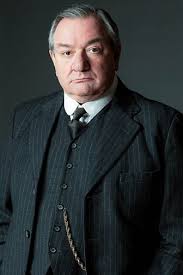
Quote: "A man has to make his own way—has to look after himself—and his family too, of course."
Analysis: This quote epitomises Birling's capitalist ideology, prioritising self-interest over collective responsibility. The phrase "of course" is almost an afterthought, suggesting that even family is secondary to individual success. Priestley critiques this through the character of Birling, suggesting that such selfish attitudes lead to social inequality and moral decay. Birling's philosophy is directly challenged by the Inspector, who advocates for social responsibility.
Sybil Birling
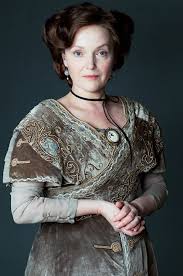
Quote: "Girls of that class—"
Analysis: Mrs. Birling's use of "that class" underscores her deep-seated prejudice and sense of superiority. This dehumanising phrase reduces Eva Smith to a stereotype, reflecting Sybil Birling's refusal to see lower-class individuals as fully human. Priestley criticises the upper class's indifference to the struggles of the working class, showing how this lack of empathy contributes to social injustice. Her arrogance and lack of remorse also highlight the moral hypocrisy of the upper class.
Quote: "I did nothing I'm ashamed of."
Analysis: Mrs Birling's refusal to accept responsibility demonstrates her moral blindness and arrogance. Her lack of shame, even after learning of her role in Eva's demise, reflects the play's critique of the upper class's inability to empathise with those less fortunate. Priestley presents her as the embodiment of social irresponsibility, using her character to show how societal ills are perpetuated by those who refuse to change.
Sheila Birling
Quote: "But these girls aren't cheap labour—they're people."
Analysis: Sheila's recognition of the workers as "people" rather than "cheap labour" marks the beginning of her moral awakening. This quote contrasts sharply with her father's views, showing that Sheila represents the younger generation's capacity for change and empathy. Priestley uses Sheila to advocate for social responsibility and to suggest that hope for a better society lies in the younger generation who can learn from the mistakes of their elders.
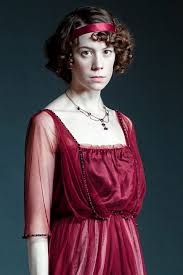
Quote: "I'll never, never do it again to anybody."
Analysis: Sheila's sincere remorse and her vow to change highlight her growth as a character. Unlike her parents, she is willing to take responsibility for her actions, making her one of the few characters in the play who undergo significant moral development. Priestley uses Sheila to embody the potential for personal and social transformation, suggesting that recognition of one's faults is the first step toward creating a more just society.
Eric Birling

Quote: "I was in that state when a chap easily turns nasty."
Analysis: Eric's admission reveals his deep flaws and the destructive aspects of his privileged upbringing. The casual phrase "when a chap easily turns nasty" downplays the seriousness of his actions, reflecting his initial lack of accountability. However, Eric's journey toward accepting responsibility is crucial to the play's message about the consequences of wealth and privilege without moral guidance. Priestley critiques the moral failings of the upper class, showing how their actions can have devastating effects on others.
Quote: "The fact remains that I did what I did."
Analysis: Eric's acknowledgement of his actions, despite the Inspector being revealed as a possible fraud, shows his acceptance of personal responsibility. This marks a significant contrast to his parents, who are eager to dismiss their involvement. Priestley uses Eric's character to show that acknowledging one's mistakes is vital to moral growth and to prevent further harm to others, emphasising the theme of social responsibility.
Gerald Croft
Quote: "I didn't feel about her as she felt about me."
Analysis: Gerald's admission reflects the power dynamics in his relationship with Eva/Daisy. While he provided her with some material comfort, he exploited her vulnerability, and his feelings were not as deep as hers. This unbalanced relationship underscores the play's critique of how the upper classes often exploit the lower classes for their own ends. Gerald's lack of genuine remorse highlights the moral failings of the privileged, who often fail to understand the full impact of their actions on those less fortunate.

Quote: "Everything's all right now, Sheila."
Analysis: Gerald's attempt to brush off the events of the evening after the Inspector leaves shows his unwillingness to change or fully accept responsibility. This quote reflects his desire to return to the status quo, revealing his superficial understanding of the night's lessons. Priestley criticises this attitude, suggesting that those who refuse to learn from their mistakes are doomed to repeat them, perpetuating social injustice.
Inspector Goole
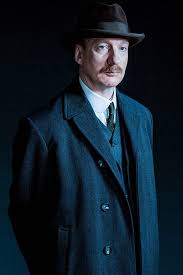
Quote: "We don't live alone. We are members of one body. We are responsible for each other."
Analysis: The Inspector's final speech encapsulates the central message of the play: social responsibility. His use of collective pronouns like "we" and "members of one body" underscores the interconnectedness of society, emphasising that everyone's actions affect others. Priestley uses the Inspector as a moral voice, advocating for a more compassionate and socially responsible society, contrasting sharply with the selfish individualism represented by characters like Mr Birling.
Quote: "Each of you helped to kill her. Remember that. Never forget it."
Analysis: The Inspector's stern reminder forces each character to confront their role in Eva Smith's death, stressing the theme of collective responsibility. This quote serves as a moral reckoning, compelling the Birlings to face the consequences of their actions. Priestley uses the Inspector to deliver a powerful critique of social apathy and the dangers of ignoring the impact of one's actions on others.
Eva Smith/Daisy Renton
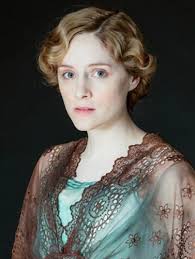
Quote: "But she died in misery and agony—hating life—"
Analysis: Though Eva Smith/Daisy Renton never appears on stage, her suffering is central to the play's message. The Inspector's description of her death emphasises the consequences of the Birlings' and Gerald's actions, highlighting the destructive impact of their selfishness. Eva's fate serves as a poignant reminder of the real human cost of social inequality and indifference, making her a symbol of the voiceless and powerless in society.
Edna
Although Edna has a minor role in An Inspector Calls, she symbolises the working class and the often invisible, unappreciated labour that supports the lives of the wealthy. Her presence serves to remind the audience of the Birlings' reliance on those they consider beneath them.
Quote: "Yes, Ma'am."
Analysis: Edna's brief responses, such as "Yes, Ma'am," reflect her position as a dutiful servant who is expected to be seen and not heard. This highlights the Birlings' detached attitude towards those who serve them, symbolising the wider societal disregard for the working class. Priestley uses Edna's character to underscore the theme of social inequality, showing how the wealthy depend on the labour of the working class while simultaneously devaluing their contributions.

Quote: "Edna'll answer it."
Analysis: When the doorbell rings, and Mr. Birling casually instructs, "Edna'll answer it," it reinforces how the Birlings expect others to serve them without question. This offhand remark illustrates the normalisation of class divisions within the household. Edna's role as the silent, obedient servant contrasts sharply with the Inspector's role as the voice of moral authority, further emphasising the play's critique of the class system.
500K+ Students Use These Powerful Tools to Master An Inspector Calls: Characters For their GCSE Exams.
Enhance your understanding with flashcards, quizzes, and exams—designed to help you grasp key concepts, reinforce learning, and master any topic with confidence!
70 flashcards
Flashcards on An Inspector Calls: Characters
Revise key concepts with interactive flashcards.
Try English Literature Flashcards7 quizzes
Quizzes on An Inspector Calls: Characters
Test your knowledge with fun and engaging quizzes.
Try English Literature Quizzes4 questions
Exam questions on An Inspector Calls: Characters
Boost your confidence with real exam questions.
Try English Literature Questions1 exams created
Exam Builder on An Inspector Calls: Characters
Create custom exams across topics for better practice!
Try English Literature exam builder14 papers
Past Papers on An Inspector Calls: Characters
Practice past papers to reinforce exam experience.
Try English Literature Past PapersOther Revision Notes related to An Inspector Calls: Characters you should explore
Discover More Revision Notes Related to An Inspector Calls: Characters to Deepen Your Understanding and Improve Your Mastery
96%
114 rated
An Inspector Calls by J. B. Priestley
An Inspector Calls: Plot Summary
448+ studying
184KViews96%
114 rated
An Inspector Calls by J. B. Priestley
An Inspector Calls: Themes
283+ studying
200KViews96%
114 rated
An Inspector Calls by J. B. Priestley
An Inspector Calls: Context
395+ studying
185KViews96%
114 rated
An Inspector Calls by J. B. Priestley
An Inspector Calls: Writer's Methods & Techniques
279+ studying
181KViews